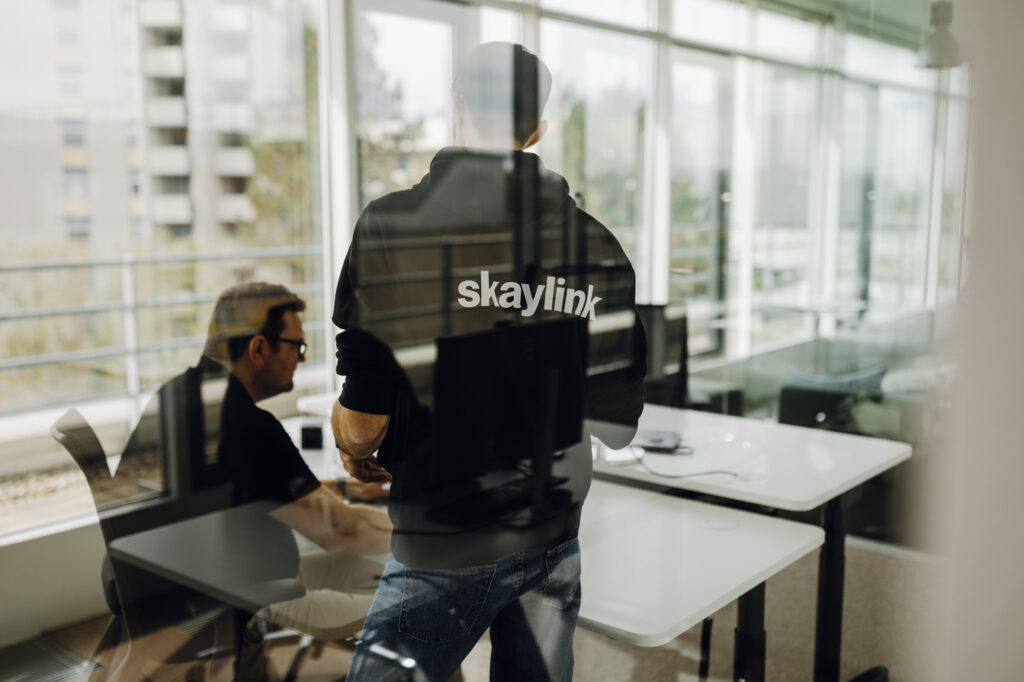
Blog
Rethinking SaaS: Can managed cloud hosting be a path to digital sovereignty?

Lead Managed Cloud Services
As Europe sharpens its focus on digital sovereignty, a critical question emerges: Should businesses and public institutions rely on convenient Software as a Service (SaaS) offerings from global tech giants, such as Salesforce, OpenAI, or even European providers like SAP, which is heavily pushing its customers toward its RISE cloud solutions, or should they take more control by running software through trusted, regional managed service providers (MSPs) on cloud infrastructure?
At first glance, SaaS seems like the obvious choice: It’s easy to use, automatically updated, comes with vendor support and is backed by large-scale environments. But beneath the surface lies a growing tension: Where is your data really stored? Who can access it? And what happens if the vendor changes its policies overnight?
This is where managed cloud hosting – delivered by European-based MSPs – enters the conversation.
Data sovereignty: It’s not just a buzzword
When using SaaS, your data is often stored across borders, subject to foreign jurisdictions, and governed by terms you can’t negotiate. In contrast, hosting business-critical applications like ERP, CRM, your web shop, CMS or LLMs from any kind of vendors through a regional MSP gives customers control over where their data resides, how it’s encrypted, and who has access to it.
This approach better aligns with GDPR, industry-specific regulations, and growing national efforts, which aim to preserve European autonomy in the digital space.
More control, more transparency
SaaS platforms are often like black boxes: You use them, but you can’t look under the hood. Managed hosting flips that model. Customers get:
- Fine-grained access control
- Full audit logs and monitoring
- Tailored SLAs
- Control over encryption, backup, failover, and disaster recovery
- Visibility into the entire software stack
This level of transparency and customizability is essential for sectors like finance, healthcare, and the public sector, where compliance isn’t optional.
Escaping vendor lock-in
SaaS is designed for convenience, not flexibility. Once you’re in, getting out can be painful, costly, or even impossible. Hosted solutions – especially those built on open-source platforms or modular architectures – offer a clear exit strategy and better interoperability with existing systems.
With the help of a skilled MSP, your infrastructure and applications can be future-proofed against sudden vendor decisions, price hikes, or service discontinuations.
But isn’t this the “old way” of doing IT?
Let’s be honest: Managing your own instance of GitLab or Shopware may not have the slick UX or AI features of a top-tier SaaS product. It’s more complex, and someone has to patch, scale, and secure the environment.
But this is where modern MSPs have evolved. With infrastructure as code, CI/CD pipelines, containerization, and automated monitoring, today’s managed environments are as agile and scalable as their SaaS counterparts – and they come with sovereignty baked in.
The architecture may be less “out-of-the-box,” but it’s more under your control.
A strategic opportunity for Europe
European MSPs are uniquely positioned to offer:
- Sovereign-first deployments with regional compliance
- Custom integrations and different levels of SLAs for every need
- Open, extensible platforms with APIs
- Proactive support from within EU legal frameworks
By rethinking SaaS and embracing a hybrid approach, we can build digital ecosystems that are both innovative and sovereign. In a world increasingly shaped by geopolitical shifts, that could prove to be a competitive advantage rather than a constraint.
Final thought
SaaS isn’t going away. But for organizations that value control, compliance, and strategic freedom, managed cloud hosting is more relevant than ever.
It’s time to ask: Do you want convenience at the cost of control, or control with the right level of convenience?
Managed services give you that middle path – one that puts your data, systems, and strategy back in your hands while providing the cloud’ s high degree of flexibility and agility.
Author’s note: Want to explore what a sovereign-ready alternative to SaaS could look like for your organization? Reach out—we’d love to talk to you. Skaylink offers managed cloud hosting for many popular standard software products and, of course, your custom applications.
Case Stories

AWS European Sovereign Cloud explained: architecture, governance and use cases

Skaylink collaborates with AWS to deploy Sovereign Cloud Solutions on AWS European Sovereign Cloud

AWS European Sovereign Cloud: Skaylink becomes a launch partner
